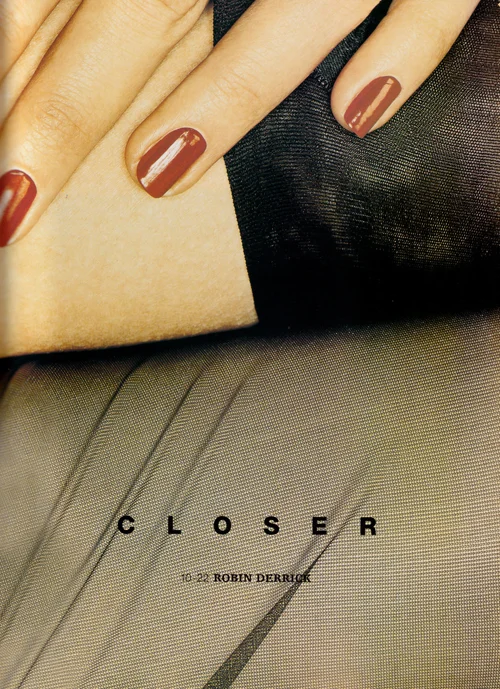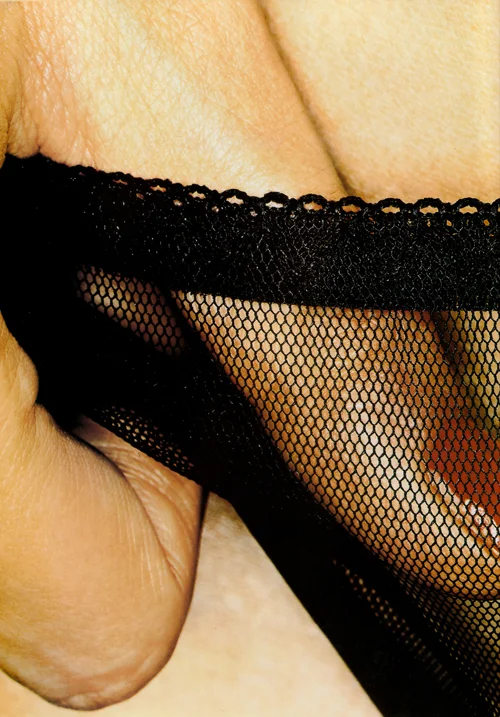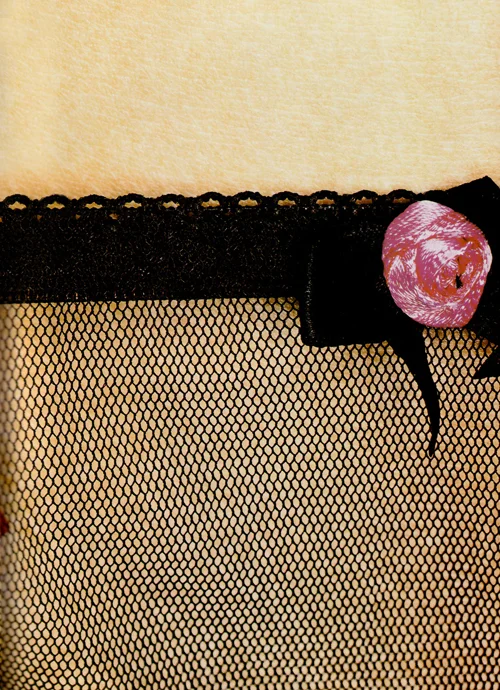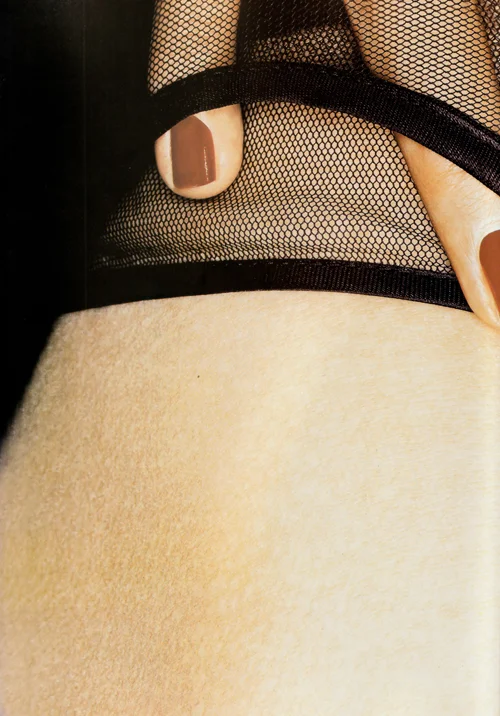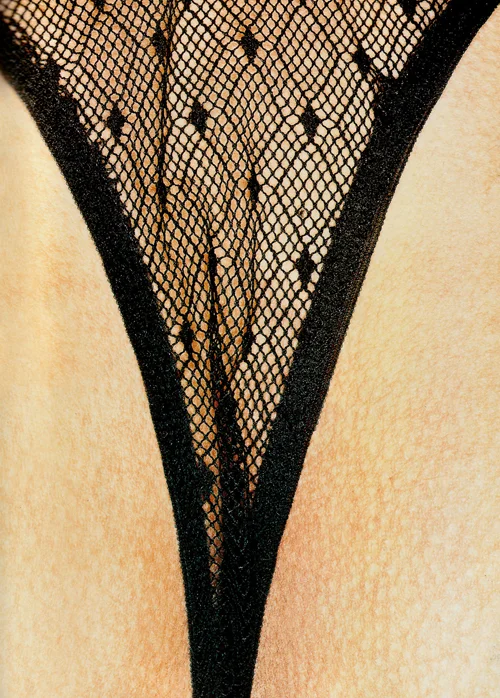Science Rehabs Original Sin Eve | Adam Dons Black Lace Panties
/Working on a new definition of sensuality, it’s clear that civilization has struggled with monitoring our senses at least since the arrival of monotheism. The power of touch — which we know to be healing in a life and death context for babies — corrupts us as adults, say the haters of flesh.
Lord Byron summed up our human condition, writing:
What an antithetical mind! — tenderness, roughness — delicacy, coarseness — sentiment, sensuality — soaring and groveling — dirt and deity all mixed up in that one compound of inspired clay.
These beautifully sensual images by photographer Robin Derrick,were published in a short-lived, erotic magazine called Deliciae Vitae. These elegant, tasteful images of female sensuality are perfect for today’s conversation.
The troubling story I wrote a few days ago about Conservative columnist Dan Gainor’s obsession with looking for pubic hair peaking through lace panties on Maxim magazine, reminds me that large majorities of men remain obsessed with female body parts.
The Egyptian feminists have ‘had it’, because even under their burqas, women remain harassed, as men run up to touch their totally veiled backsides. A woman can be stoned to death for showing an ankle in public, but many men in these same societies believe they have an inherent right to lift her skirt for a glimpse of the forbidden flesh.
In Egypt, men trot after niqab-clad women in the street, touching them like school boys at play. It’s not a pretty sight, and growing numbers of Egyptian women are taking up martial arts.
In truth, we are talking about a male problem assigned to women.
It is men, speaking for God, who have created the story of Eve and original sin to assign permanent blame to women for their actions. Men are corrupt because Eve brought down the house on men’s heads and they are powerless before her.
Whenever men screw up, Eve’s original sin is available to take the blame.
A man like Dan Gainor cloaks his own monitoring of women’s bodies in the guise of protecting children. In reality, any man who spend his days looking for pubic hair — even when barely visible in a pair of lace panties — is probably perverted in some small way.
Getting Eve Out of Jail
The Vatican spoke recently about the science of evolution, which they accept.
Pope Benedict insists that God was behind the Big Bang, but he is not a fundamentalist in believing that woman was created from Adam’s rib. Admittedly, the Vatican remains hush hush on the topic, but if queried, Pope Benedict agrees that evolutionary science is valid.
In accepting that God didn’t create Adam as a whole man a few thousand years ago, the Catholic Church implicitly rejects Genesis as nothing more than a story designed to explain the human condition.
In reality, Genesis is a patriarchal policy statement designed to organize societies in a way that puts men in charge of women’s bodies.
There is no historical fact in the implicit assumption that civilizations flourish, becoming more Godly, with the male morality police in charge of women’s bodies, whether the country is Sudan, Somalia or America.
At Anne of Carversville, the female body is celebrated, not sacrificed to the global morality police.
Go ahead and touch yourselves, my dear women. Love your bodies as temples of virtue and not vessels of corruption. At peace with yourself, go forward as an integrated women — body and soul — and do all the good work that inspires you.
Global research on every continent confirms that societies do better when women are leaders, as well as men. Many new policy papers confirm that having women in charge creates more humanistic, spiritual, less violent communities.
I am adamant that unleashing full female potential requires us to get the morality police off our backs. There is no evidence that in embracing your body, you will be a bad mother, an unfaithful wife or leave your church.
Time for a Change of Underwear
Men have far more important issues to worry about than monitoring female behavior. I suggest they do what I did a decade ago — which is to lock themselves in the bathroom and take a good look in the mirror.
If men put religious ideology aside as the God-given right they have to do anything in his name, the world would be a far better place in my opinion. Staring into their own mirrored eyes for truth, they will find a few tears seeking release at the horrors they have perpetuated on civilizations in His name.
After the tears, the healing begins, as so many men know.
The journey to self-love isn’t only for females; millions of men worldwide also want to catch a ride on the Love Express. In truth, acquiring self-love is a slow boat trip, taking years to reach the desired destination — which spiritual gurus tell us was staring into our own eyes and open hearts for decades.
I just had this totally wicked thought about the fine men in life I’ve known who enjoy wearing women’s panties on occasion. Hardly corrupt, these men are caregivers at the highest rungs of American society.
Instead of condemning lace panties and pubic hair, I propose a new relationship with female lingerie.
Perhaps it’s time to throw off our jockey shorts instead. Let our men explore their feminine side, instead of condemning it. There is liberation in lace, as long as it’s not red. Even I agree that a world wearing red lace panties could inflame global passions beyond our control.
One step at a time in rehabilitating Eve, so let’s stay with black lace.
On further reflection, it’s probably time to call in Lilith, who makes Eve look like a total pussy cat when the topic is the corrupt, deadly nature of female creatures. Lilith, Cleopatra, Mama Wati — let’s call up the whole gang of disgraced women, and send men off to morality rehab instead. Anne




